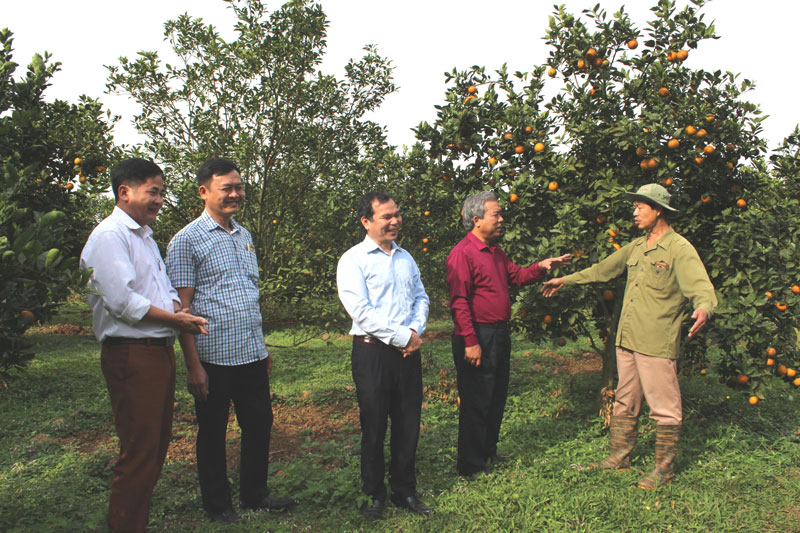


Up to now, the district has initially formed concentrated vegetable production areas suitable to the ecological conditions of each region, such as the one of gourd, pumpkin, cucumber, leek, bitter cucumber and potato.
Besides, Kim Boi district has also developed citrus fruit trees such as oranges, tangerines and grapefruit. As of early 2019, the total area of citrus tree farm in the district was nearly 1,300 hectares, mostly in the communes of Tu Son, Du Sang, Vinh Tien, Bac Son, Hung Tien, Kim Son, Nam Thuong and My Hoa.
Chu Van Duong, head of Dong Ha village in My Hoa commune, said that fruit trees are one of the priorities in the process of improving gardens and transforming the structure of the cultivation sector in Dong Ha as well as many other localities Kim Boi district.

The model of transforming a hodgepodge farm into orange and grapefruit farm in Dong Ha village, My Hoa commune.
"Since 2013, my family pioneered converting nearly 1 hectare of garden into orange and tangerine farm. Over the last two years, the farm has regularly brought to the family an income of over 200 million VND each year,” said Duong.
At present, Dong Ha hamlet has about 62ha of orange. Gardens with mix plants have gradually been replaced with orange, grapefruit and some kinds of crops with competitive advantages in the market.
Bui Van Dum, Chairman of Kim Boi district People's Committee, said that the district People's Committee actively directed the implementation of the scheme of upgrading trash gardens, considering it as a necessary motivation to promote the process of transforming crop structure and restructuring the cultivation sector of the locality.
In 2018, along with maintaining the area of developed farms of 2017 at 100 hectares spanning 14 communes, the district converted another 82 hectares of mixed gardens, and supported farmers with over 19,200 high-value fruit tree saplings such as longan, Dien grapefruit, Thai jackfruit, sapodilla, mango, guava and custard apple, thus encouraging local famers to upgrade their gardens and restructure crop structure.